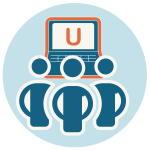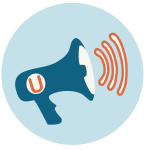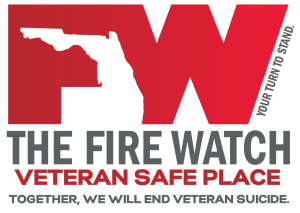Work Readiness Trainings and Self-Advocacy Trainings are funded by Florida’s Division of Vocational Rehabilitation (VR). If you would like to participate, start by contacting your VR counselor.

WORK READINESS TRAINING
employU Work Readiness Training prepares students with practical skills they will need to enter the workforce. Each 20-hour workshop is designed to help students identify possible career interests, set and track goals, develop communication and conflict resolution skills, build a resume and cover letter, learn the dos and don’ts of interviewing including practicing interview skills, how to be a good employee, explore transportation options, and develop budgeting skills. These sessions include:

SELF-ADVOCACY TRAINING
Self-Advocacy Training is a 30-hour interactive workshop that focuses on the development of soft skills – personal attributes needed for success on the job and apply to any career field. Soft skills relate to how you work and include interpersonal (people) skills, communication skills, listening skills, time management, empathy, critical thinking, problem solving, teamworking, professional attitude, and work ethic, among others, which are desirable in all professions.
What are soft skills?
Hiring managers typically look for job candidates with soft skills because they make someone more successful in the workplace. Someone can be excellent with technical, job-specific skills, but if they can’t manage their time or work within a team, they may not be successful in the workplace. Soft skills are also important to the success of most employers. After all, nearly every job requires employees to engage with others in some way. Another reason hiring managers and employers look for applicants with soft skills is that they are transferable skills that can be used regardless of the person’s job. This makes job candidates with soft skills very adaptable employees.
Key takeaways
Participants will build the confidence to speak for themselves, learn to effectively communicate their needs and feelings; understand positive thinking, attitude, and goals; have a clear picture of their skills and interests. They will also conclude their training with several job ready takeaways such as resumes, references, a cover letter and letters of recommendations.
By the end of the training participants will have learned:
- How to effectively navigate conflict
- How and when to disclose a disability
- What are reasonable accommodations and how to ask for them
They will also have participated in:
- Learning style assessments
- Career and interest assessments

CAREER CAMPS
Earn while you Learn
Career Camps focus on fundamental workplace skills that will assist students with building their communication and time management. While discovering new career paths and learning about post-secondary education options, students will participate in an interactive environment and gain various skill sets. Almost all careers involve elements associated with the types of essential workplace skills developed during these career camps; making the skills taught in career camps beneficial for all career paths.
Attending all 30 hours will maximize your benefits & earn as much as $250!
(Stipends will be paid within 30 days of completion.)
Benefits of Attending Career Camp
Activities include role-plays, vision boards, budgeting, mock interviews, and host of other fun games to allow students to practice their skills. Topics include:
- Communication
- Problem-solving
- De-escalation
- Confidence-building
- Learning how to self-advocate
- Increasing independence
- Exploring potential career paths
- Listening
- Negotiation
- Mindfulness
Career Camps also feature a variety of industry leader guest speakers who provide an overview of their current positions and what a typical day looks like in their respective fields, describe how they got to where they are now, and answer educational questions.
PRE-EMPLOYMENT TRAINING
Getting hired at the right job takes time and preparation. During the pre-employment training phase, customers will gain valuable skills to set them up for a successful job-hunting experience.
SELF-ADVOCACY TRAINING
Available for adults up to age 24, Self-Advocacy Training is a 30-hour interactive workshop that focuses on the development of soft skills – personal attributes needed for success on the job and apply to any career field. Soft skills relate to how you work and include interpersonal (people) skills, communication skills, listening skills, time management, empathy, critical thinking, problem solving, teamworking, professional attitude, and work ethic, among others, which are desirable in all professions.
What are soft skills?
Hiring managers typically look for job candidates with soft skills because they make someone more successful in the workplace. Someone can be excellent with technical, job-specific skills, but if they can’t manage their time or work within a team, they may not be successful in the workplace. Soft skills are also important to the success of most employers. After all, nearly every job requires employees to engage with others in some way. Another reason hiring managers and employers look for applicants with soft skills is that they are transferable skills that can be used regardless of the person’s job. This makes job candidates with soft skills very adaptable employees.
Key takeaways
Participants will build the confidence to speak for themselves, learn to effectively communicate their needs and feelings; understand positive thinking, attitude, and goals; have a clear picture of their skills and interests. They will also conclude their training with several job ready takeaways such as resumes, references, a cover letter and letters of recommendations.
By the end of the training participants will have learned:
- How to effectively navigate conflict
- How and when to disclose a disability
- What are reasonable accommodations and how to ask for them
They will also have participated in:
- Learning style assessments
- Career and interest assessments
Contact Us



 .
.
Latest News